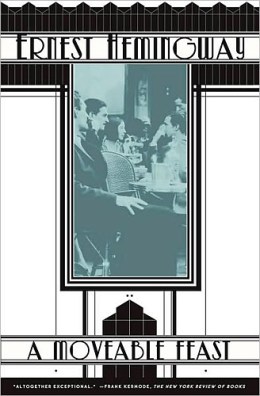
Ernest Hemingway begins his memoir of Paris in the 1920s with a scene from autumn, when “all the sadness of the city came suddenly with the first cold rains of winter.” It’s a mood that returns when he leaves Paris at the end of the book, his first marriage in shambles but his faith in the transformative power of the city intact. In between, we relive his heady encounters with Gertrude Stein, his friendship with F. Scott Fitzgerald, warm days in the Jardin du Luxembourg and walks along cramped and ancient streets where goatherds still ply their trade, calling for customers to come down with pots and milk the animals. It was a Paris of another time, not just for modern readers but for Hemingway: he wrote the book in the 1950s, long after he’d left France and not long before he died in 1961. Reading it can be a wistful experience, but as he says on the last page, “Paris was always worth it.”
